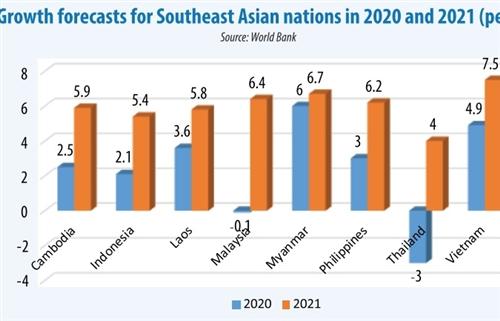More procedures to go online: minister
More procedures to go online: minister
The Government of Viet Nam wants the business community to provide feedback and input to help improve the National Public Service Portal, heard a conference held by the Prime Minister’s Council on Administrative Reform and the World Bank in Ha Noi on Tuesday. 
To cope with COVID-19 pandemic, the Government has been pushing more administrative procedures online, including the use of e-documents and e-reports, and the establishment of information and public service portals on local levels, said Minister of the Office of the Government Mai Tien Dung.
Government Decision 45/2020/ND-CP also dictated, for the first time, that online procedures be recognised by governmental agencies to reduce red tape, paperwork for businesses and to promote online transactions as well as the digital economy.
“Since its formation, the National Public Service Portal has proven to be an effective tool in the country’s scheme to digitalise administrative procedures. In addition, the portal also helps improve the transparency and accountability of local governments,” said Dung.
The portal has developed from just eight groups of public services, to provide nearly 400 services with more than half designed to meet the needs of businesses. The portal allows firms to open service tickets with ministries, agencies and local authorities.
Citizens and businesses can track how their applications are being processed and at the same time, the Office of the Government can keep an eye on the proceedings and when required, send feedback and instructions.
Resilience and productivity
Speaking at the conference, the World Bank’s country director Ousmane Dione said the COVID-19 pandemic had brought unprecedented disruption to social and economic development on a global scale. He called for the Government and business community to work together to fight the crisis.
Along with effective public health measures taken by the Government, the country’s swift digitalisation of public services was a highlight of its ability to deal with the pandemic.
Dione said the portal was of tremendous value in stopping the spread of the coronavirus and in protecting the health of citizens and public servants.
He called for actions to be taken by the private sector to hasten business digitalisation to improve business resilience and ensure operations can run uninterrupted. As made clear by the pandemic, businesses with a high level of digitalisation have proven much less likely to be affected while others suffered disastrous consequences or were put out of operations.
In addition, applications of digitalisation, e-commerce, big data and Artificial Intelligence may boost productivity and add value for small-to-medium-sized enterprises by up to 26 per cent, he said, citing a 2019 study conducted in Singapore. On a regional scale, digitalisation has the potential to create US$1.1 trillion in GDP value for ASEAN economies by 2025.
Dione also called for the Government to continue with administrative reforms to cut costs and time for businesses. To this end, data gathered by the portal may provide an excellent starting point for the Government to identify time-wasting procedures and bottlenecks in the system.
The national public service portal debuted on December 9, 2019, and has logged more than 140,000 registered accounts, 35 million visits, 7.3 million documents and processed more than 68,000 documents.
It is estimated as much as VND6.49 trillion ($280 million) has been saved thanks to online public services a year, which includes VND3.036 trillion from the portal.
According to the report of the Government Office, after six months in operation, the portal has supplied 389 online public services (160 for people and 229 for enterprises) in sales promotion, electricity supply, payment of taxes, charges and fees, electronic tax declaration and payment and tax extension request.
Starting from May 12, the portal has started additional services to support citizens and businesses affected by COVID-19 including workers who have lost their jobs or had their salaries suspended, employers who have borrowed to compensate laid-off workers, applications to delay payments of personal and business income.


























